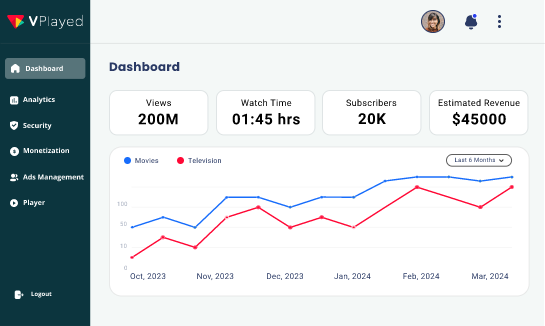Tips For Launching Your First Music Streaming Service

Music means different things to different people. While some may tune into offbeat rock, others want a comforting rendition. So, no matter how many years pass, good music is always in demand. And the best part is that the music industry keeps adapting itself to the evolving technologies, user preferences, and listening habits.
Music streaming is one such new-age innovation where tens of thousands of songs can be listened to from a single platform. Listening to songs on the Internet isn’t something new, yet to have access to such a large music library that includes tracks from all over the world combining different genres is something entirely apart. So, by creating a music streaming app, not only are you going to venture into a successful biz but also bring the world closer to your listeners.
Table of Contents
Most Popular Music Streaming Apps In 2022
Before we dive into the technicalities of starting your first music streaming service, it is wise to draw inspiration from some of the market leaders who’ve already made it big in the industry.
1. Spotify
One can hardly ignore the gleaming glory of Spotify when discussing music streaming. The most successful music platform ever, Spotify’s business model is something every debutant needs to look up to. With millions of tracks and thousands of playlists, this streaming giant offers a free model supported by ads and a premium version that requires a fee to be downloaded.
2. Pandora
One of the pioneers in the music streaming market, Pandora works on a subscription-based model. Its simple and easy-to-use interface that allows users to stream from a wide range of songs is one of the major reasons for the platform’s success.
3. Apple Music
An exclusive music streaming service from Apple that was launched quite recently in 2019, it quickly became popular for its ad-free streaming. Listeners have access to the entire catalog of songs on the OTT app based on a subscription fee. However, for those who want to buy individual songs or albums, there is iTunes.
Why Music Streaming Is a Go-to Business Idea?

Technology has opened doors to fresh and trending music from industry veterans and independent artists alike. The total revenue from the music streaming sector is all set to surpass $23 million by the end of 2021 and is only expected to grow further in the coming years. The market for music streaming is comparatively large in the US, however, there is great potential for this segment in other countries as well with the user penetration forecasted to be more than 11% by 2025. So, it is high time for venture capitalists, investors, and content owners to step into create a music streaming app like Spotify without a second thought.
Step-by-Step Guide In Building A Music Streaming Service
1. Understand How Music Streaming Works
Every music streaming service has a remote server to which all the listeners using the platform are connected to. When the play button is hit, raw music files at the server are pre-buffered using a streaming software before it reaches the end-user whose device is backed by a good Internet connection. This simply means that a music track is not downloaded and stored in the listener’s device but is delivered as small packets of data.
2. Pick Your Business Niche
It is extremely important to focus on the type of music app you want to build rather than being generic when you approach a developer or a solution provider. Decide whether your music platform is specific to
– Exclusive music streaming
– Podcasts
– Online radio or a combination of these.
3. Ready Your Music Library
Content is the most valuable asset for any music streaming platform. Curate your catalog with the most trending tracks; both regional and international. Also, try to add albums that have been popular in the past. Moreover, including tracks from independent artists and growing musicians helps increase your audience base who are interested in discovering fresh music.
4. Get Your Licensing/ Streaming Rights
Content owners must mandatorily obtain streaming rights (Mechanical Rights and Public Performance Rights) from authorized bodies to host music to the public. Broadcast Music Incorporated (BMI), and The American Society of Composers, Authors, and Publishers (ASCAP) are two of the most popular organizations that grant streaming licenses in the USA whereas it is the Society of European Stage Authors and Composers (SESAC) is who you have to approach if you are targeting European audience.
5. Choose the Platform To Launch Your App (iOS, Android, Web)
By choosing the type of platform you decide to launch your music streaming service on, you indirectly choose your target audience. So make a wise move as to decide among iOS, Android, and Web as this will ultimately play a key role in determining your overall engagement and revenue. Opt for multiple platforms if you have a good budget!
6. Finalize The Monetization Model (Subscription, Ad, Freemium)
Most of the market leaders have monetized their music streaming business with the subscription model. Paying a monthly/ yearly fee to gain access to the entire catalog of songs is more preferable than purchasing one particular song or album. However, ad-based and freemium models are also a great way to generate good revenue in music streaming.
7. Estimate the Cost
Budget is the key to any business. Having a basic estimation of the amount you are going to spend on your streaming service helps the solution provider come up with a customized package to suit your business needs. You may also choose between creating an MVP (Minimum Viable Product), the one with basic features, or go ahead with a full-fledged streaming app that is inclusive of all the detailing.
8. Build Your Streaming Service
As a platform owner, the most efficient way to host your own audio streaming content is to find the right solution provider who can customize your first music streaming service at its best. Talking about customization, CONTUS VPlayed is your go-to audio streaming solution that assures 100% customization to ensure your first music platform delivers high-quality content to sweep your listeners off their feet. With both live, and on-demand options, it is all you need for the new-age streaming.
9. Upgrade the App Regularly
Music trends, user behavior, and streaming technologies keep evolving from time to time. And only those platforms that keep upgrading themselves sustain in this highly competitive market. Keep a watchful eye on real-time audio analytics to offer updates based on the data you collect.
Recommended Reading
Features To Include In Your Music Streaming App For Users
| 1 | User registration/ sign-in | A less complicated registration process attracts a lot of users to sign-up on your music app. Provide different sign-in options like social media logins, phone number, and email ids for authentication. |
| 2 | User-friendly music player | The most vital aspect of any streaming platform is a user-friendly music player that allows the listener to play, fast forward, rewind, and stop the song. |
| 3 | Easy music discovery | Easy and quick search options to help your listeners find the track or album they are looking for is a definite feature to be included. |
| 4 | Music organizing | You can allow your listeners to create their own playlists. Most users find this feature extremely attractive as they get to listen to their personalized album and not keep skipping one song after the other until they find their favorite one. |
| 5 | Offer recommendations | Recommending your listeners with song and podcast suggestions is the best way to keep them glued to your platform for long periods. |
| 6 | Enable social sharing options | This is the age of social media! Integrate social sharing buttons on your platform for listeners to recommend a song or an album to their peers on FB, Instagram, and other mediums. |
Essential Admin-Side Features
| 1 | Admin dashboard | Make sure the admin dashboard on your music platform enables you to upload, manage tracks, and categorize playlists effectively. |
| 2 | Ad-integration | The admin or super-admin must be able to integrate advertisements, commercial banners, or push notifications from his end. |
| 3 | Track analytics | It is highly paramount for every content owner to track analytics to tweak the app from time to time. Hence, have a conversation with your solution provider on how you want to track music and user analytics right from the admin panel. |
| 4 | Manage pricing/ subscription plans | Managing the platform’s revenue plans should lie entirely with the admin. This is a critical activity and hence only the admin should have the authority to create subscription plans or fix the cost of individual tracks. |
Bottom Line
The mountainous growth of the music streaming industry not only benefits business owners but also debutants and independent artists who want to broadcast their music to the world. And all it takes to reach such great heights is to build a music streaming app that a listener can relate to. This is exactly what we do at CONTUS VPlayed- create an audio streaming platform that your users wouldn’t want to spend a day without!

